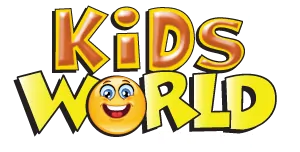Learn English » Vocabulary For Beginner Level Learners
A good repertoire of vocabulary is an absolute necessity for you, to be an effective language user. In speaking or in writing, you can express your ideas most vividly, with the use of apt words. For native speakers and learners of English as a second language, vocabulary learning may happen at a subconscious level, if they are exposed to rich texts and speech early on in life. However, learners who have not had such exposure will have to consciously enrich their repertoire of words.
It is not enough to just know word meanings. How to use the word in a context is very important. This is why collocations and connotations are crucial. In a second language learning context, often it becomes a problem when the learner uses a word in a context that is inappropriate. This rampant problem happens because the learner has learnt the word in isolation, not in context. Therefore, it is of paramount importance that words are learnt in context, in the real life scenario, as much as possible.
At the beginners’ level, learning English mostly consists of learning new words, their meanings, and how to use those words in meaningful contexts. This is largely done based on listening to new words being used, and repeating those words orally. However, even here, the material used, and the method used for teaching and learning new words should be as close to real life as possible.
Here are worksheets with exercises designed to teach beginner level English vocabulary. These exercises are based on real life scenarios and material, so that they provide authentic experiences to the learners. Such experiences ensure that the words that are learnt will not be forgotten easily. The vocabulary teaching methods used in these worksheets are the ‘direct method’ (using real life objects) and the ‘total physical response’ (using actions and gestures) method. Both the ‘direct method’ and the ‘total physical response’ method are time-tested and effective methods especially for beginners, since they are authentic and are based on speaking and listening. These methods are characterised by the authenticity they bring to the learning environment, and to the learning material.
By the term ‘beginners’ is meant a learner who is new to the English language, in reading, writing, listening and speaking. ‘Beginners’ do not refer to any particular age. A pre-schooler could be a beginner. A 25 year old could also be a beginner.
Browse through the following worksheets and decide which one is suitable for your students’ needs.
Worksheet-1 : Build Your English Vocabulary
Was this article useful? What should we do to improve your experience? Share your valued feedback and suggestions!
Help us to serve you better. Donate Now!

